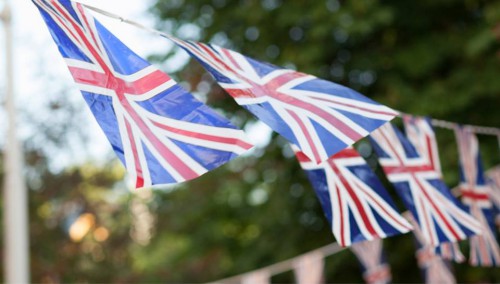16th December 2013
Branding the Creative industries
We talk a lot about brands these days. There is a lot of value in a strong brand. The worth of a brand is in how its distinguishes, or stands out, from other brands.
As a British ambassador, I’m very much part of the “British brand”. My role entails a variety of activities, from supporting British companies, promoting British initiatives to explaining particular aspects or issues of my country – as with this blog.
I’m very lucky because my country has a strong brand, especially our flag. Unfortunately not all the products that bear the Union Jack were made in Britain. But the flag has been very popular on such as T shirts, especially after the Olympics last year.
So part of the “brand management” entails promoting British products. I recently opened the first outlet in Belarus of a British shop. I freely admit that shopping is not my most favourite activity. But as the British ambassador, I’m proud to be associated with a British company that has had such success in Britain and abroad.
I also gave an interview about cars recently. As I explained to the journalist, I’m not actually that interested in cars, the power of their engines, and so on – unlike the presenters of one of Britain’s favourite televsion programmes, popular around the world. But one element that does attract me is design: I like a car that looks good.
Good design is an extremely important element in the production of goods. It’s not just producing something that functions well and efficiently. But also something that attracts the eye.
Britain has some fantastic design colleges that teach a wide range of design from fine arts, graphics, to design of industrial products. While the most famous may be those based in London like the Royal College of Art or those which recently combined to form the University of the Arts, there are many others around Britain.
In fact, design is just one of what we know as the creative industries. These are ever more important as Britain has turned from being a country with an economy based on manufacturing, towards one with an economy based on services.
The creative output of our designers, artists, publishers, IT companies, fashion houses, advertising agencies and so on, are an important element of the services. My government estimated that the output from the creative industries made up about 10% of our exports, over half of which is made up of publishing in various forms and broadcasting (ie television and radio content).
Hence the government has an advisory body, the Creative Industries Council, to suggest how it can improve the growth prospects in the sector. Of course our language is a major advantage and central to our publishing success. But those creative products that rely on visual impact are also strong.
All this creativity has one major threat that has become much more acute in the digital age. Someone can now far more easily copy the text, film, design or, even, the technology of someone else and seek to sell it for themselves. The originator of the creative product therefore loses out.
The best example in recent years has been the music recording industry. Piracy of music across the internet has turned that industry upside down.
So Britain is one of the leading advocates of having strong international rules on intellectual property to protect the creative output. As a country with a rich creative output, we stand to lose more from others stealing our ideas. After all, theft of ideas is still a form of theft.

” This is your captain speaking/I ´d like to welcome you aboard this Eurovision flight/the duration will be 3 minutes exactly7Now sit back and
enjoy the flight/
`Cause we ´re flying the flag all over the world/
We ´re flying the flags for England..”
(“Scootch” , UK´s contribution to ESC (Eurovision Song Contest) , 2007.
Dear Bruce,
although my father was welsh and doesn ´t like “Brits” so much (WHY ?); I immediately associated yr. nice report plus this pretty “flying” photo with the above mentioned song. It doesn´t has of course a very much intellectual appeal but it ´s nevertheless creative music in. re. of an international “POP- SONG” APPEAL.
And – in my opinion – surely also another proof of England ´s fantastic “creative” output. As long as we are able to fight against this internet music ( AND MOVIE !) criminal piracy.
Thanks for the usefully links.
Best wishes , liebe Grüßle, Ingo-Steven, Stuttgart